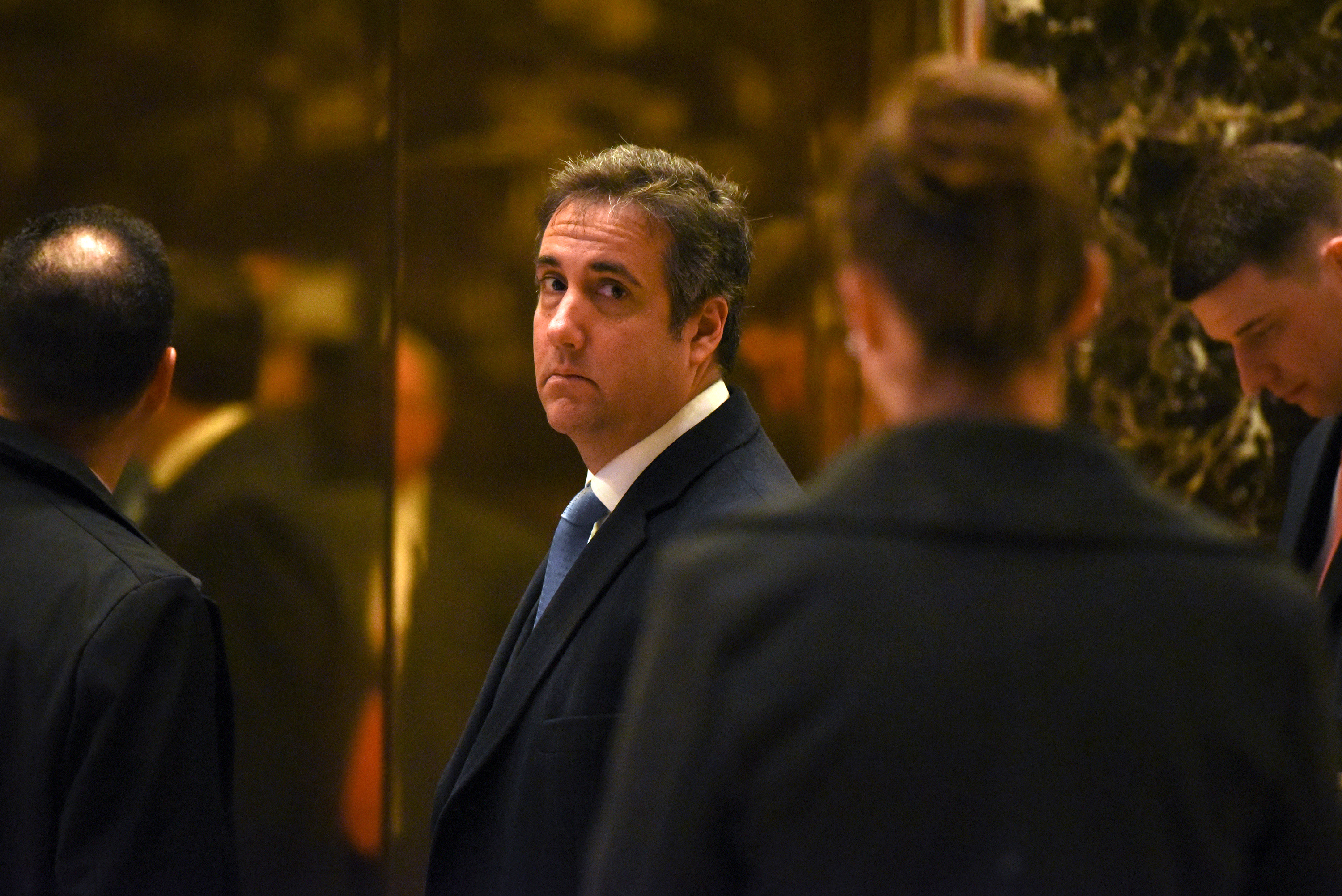Michael Cohen, President Donald Trump’s longtime personal lawyer and close confidant, is downplaying the controversy surrounding his involvement with a Russian-born businessman to secure a Trump Tower deal in Moscow and his contact with a top Kremlin official at the height of the presidential election.
Cohen was in touch with the businessman, Felix Sater, in late 2015, when Trump was a candidate.
The two men exchanged a series of emails in November 2015 in which they geared up to celebrate the Moscow deal, as well as Trump’s election victory, which would come a year later. In the emails, which were obtained by The New York Times, Sater bragged about his relationship with Putin and told Cohen that he would “get all of Putins team to buy in” on the Trump Tower Moscow deal.
“Our boy can become president of the USA and we can engineer it,” Sater wrote, according to The Times. “I will get Putin on this program and we will get Donald elected.”
But in an interview with Vanity Fair published on Wednesday, Cohen said the proposal from Sater was "business as usual and nothing more … just another project, another licensing deal." He added that he had "really wanted to see this building go up, because the economics were fantastic."
Sater told Talking Points Memo in August that his "last Moscow deal for the Trump Organization was in October of 2015" but that it "didn't go through because obviously he became president."
"Once the campaign was really going-going, it was obvious there were going to be no deals internationally," Sater said. "We were still working on it, doing something with it, November-December."
Cohen also addressed the recent firestorm around revelations that he was in contact with Dmitry Peskov, a top aide to Russian President Vladimir Putin, about pushing the Trump Tower Moscow deal through.
"Over the past few months I have been working with a company based in Russia regarding the development of a Trump Tower-Moscow project in Moscow City," Cohen wrote to Peskov, according to The Washington Post. "Without getting into lengthy specifics the communication between our two sides has stalled."
Cohen continued: "As this project is too important, I am hereby requesting your assistance. I respectfully request someone, preferably you, contact me so that I might discuss the specifics as well as arranging meetings with the appropriate individuals. I thank you in advance for your assistance and look forward to hearing from you soon."
Cohen explained during the Vanity Fair interview, "I said, let me email him and I'm going to see whether or not this is legitimate, that they're aware of it with the land acquisition … I typed in 'Kremlin' into Google and there's a phone number that's there and underneath it, there's an email address for [email protected] or whatever it is."
The New York Times' Maggie Haberman confirmed last week that Cohen emailed Peskov at a general email and not his personal one.
Vanity Fair reported that Peskov confirmed to Cohen that he had received the initial email but did not otherwise respond.
"There is nothing, no contact between me and any Russian officials except sending one email to a general inbox and it went unresponded," Cohen said. "I was a little disappointed that it went unresponded."
Cohen is under scrutiny from the congressional intelligence committees as they investigate Russia's interference in the 2016 election. His emails with Sater and Peskov will also likely be of interest to special counsel Robert Mueller, who is spearheading the FBI's probe into whether the Trump campaign colluded with Moscow to tilt the election in Trump's favor.

